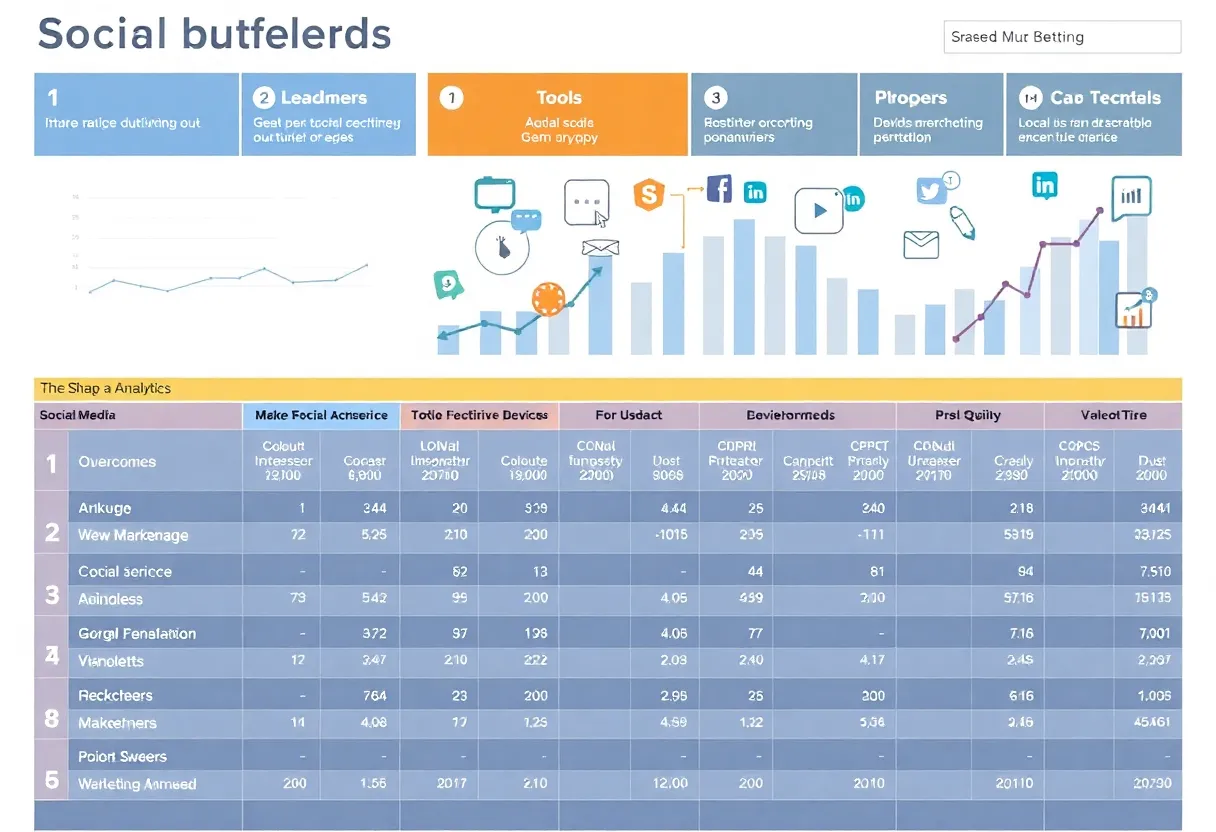

Social media analytics chart with marketing tools and devices.
Article Sponsored by:
Real Internet Sales is a digital marketing agency located in Columbia, South Carolina. We specialize in website design and development, SEO, social media management, online advertising, AI integration, and workflow automation. Our services also include affiliate marketing and digital strategy.
Real Internet Sales also offer specialized programming for real estate firms, using IDX and RETS feeds to automatically populate MLS properties on their websites for improved property listings and sales. We also work with clients in the restaurant, tourism, and e-commerce industries to enhance their digital presence and streamline operations.
In today’s digital landscape, understanding your audience is critical. Digital marketing strategies rooted in customer insights are more effective and yield better results. Social listening is a vital tool to gather these insights. This process involves monitoring social media platforms and other online channels to understand what customers are saying about your brand, competitors, and the industry as a whole. Utilizing social listening effectively can enhance your digital marketing efforts significantly.
Social listening goes beyond simply tracking mentions of your brand. It encompasses understanding the sentiments behind those mentions and gathering data on trends, preferences, and pain points. This approach involves:
Social listening is essential for several reasons:
Before diving into social listening, clarify what you aim to achieve. Common objectives include:
Numerous social listening tools can analyze data from various platforms. Choose tools that fit your objectives and budget. Common features of effective tools include:
Identify the platforms where your audience is most active. Common channels include:
Once data is collected, analyze it for patterns in sentiment, recurring themes, and influential voices. Key focus areas include:
Content is a cornerstone of digital marketing. Leverage insights from social listening to produce relevant content that resonates with your audience, such as:
Social listening allows you to identify and address customer grievances swiftly. Likely actions include:
Social media campaigns can be refined using insights gained from social listening. Consider:
Social listening helps identify influencers whose audiences align with your target demographic. When collaborating with influencers:
Brand XYZ faced a public relations crisis after a product malfunction was widely discussed on social media. By employing social listening, the brand:
Company ABC utilized social listening to understand consumer desires for a new product line. Insights gained allowed them to:
While social listening offers many advantages, it also poses some challenges:
Social listening is an invaluable resource for informing your digital marketing strategy. By understanding customer sentiments and trends, brands can make informed decisions, enhance engagement, and create impactful campaigns. In an era where customer preferences constantly evolve, leveraging social listening effectively is not just beneficial; it is essential for sustained success in digital marketing.

7001 St Andrews Rd #329 ,
Columbia, SC 29212,
United States
Phone: (+1) 803 708 5514
News Summary Jewish Family Service (JFS) is enhancing its services in Cape May County by…
News Summary The SEOST Digital Marketing Conference 2025, previously SEO Spring Training, promises a larger…
News Summary A recent study shows that 66.7% of Americans are adopting generative AI tools,…
News Summary As we enter 2025, social media is witnessing a critical shift towards authenticity…
News Summary Social commerce sales in the United States are projected to reach $80 billion…
News Summary Porsche AG is set to undergo significant executive changes starting in 2025. Matthias…